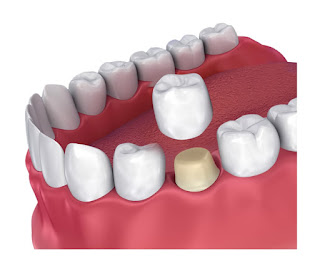Most dentists try to save a tooth through root canals. However, sometimes a tooth is so badly damaged it cannot be saved. At this point, the
extraction and removal of the tooth are the only options. A tooth can also be removed to pave way for new teeth, when an outgrowth is occurring or for orthodontic treatment or when wisdom teeth need to be removed. There are two main types of tooth removals: Simple extractions and surgical removal. Simple removal involves removing visible teeth using local anesthesia and loosening of the teeth. Meanwhile, surgical extraction involves removing teeth that are lodged within the gum. The Navasota Dental, Tx that is conveniently located near to 413 N Lsalle St, Navasota is the nearest dentist office.
Decay or Damage is the most common reason for the removal of teeth. Most people take lots of sugary foods that remain lodged in the teeth and cause decay. Lots of people also ignore cleaning their teeth until it’s too late for them to be saved. Sometimes a tooth decay extends to the gum and pulp, then the dentist will most likely choose
tooth extraction. For Crowded Teeth, Dentists sometimes can pull off teeth to prepare the mouth for orthodontics which is the process of properly aligning the remaining teeth. the tooth and the area around it numb. If it’s more than one tooth is removed or the damage is severe, then the dentist may resort to general anesthesia. Once the anesthesia kicks in, the dentist will then twist the tooth left and right to try and loosen it. If the tooth is too tight, the dentist might have to cut away bone tissue and gum to release it. Using forceps the dentist will then grasp the tooth and gently rock it till the ligaments give way. Sometimes the tooth might have to be broken and pulled out in bits.
Find us at:
413 N Lsalle St
Navasota TX 77686
Taking Care Of Your Oral Health In Self Isolation
During self-isolation, make sure you are well prepared to care for your oral health. The pandemic is disrupting every area of our lives are currently, including physical activity. We can no longer simply go for a walk, visit the gym or play team sports, while the temptation is to sit at home and spend more time on the couch. However, physical inactivity is a major risk factor for developing a serious disease
Toothbrush Hygiene
Keep safe by making sure nobody uses each other’s toothbrushes and that they are stored well away from everybody else’s toothbrush. The damp environment of a toothbrush is ideal for spreading viruses. Use separate toothpaste as well.
Continue with Your Normal Oral Care Routine
Sticking to every day routines is important while self-isolating and particularly your dental maintenance routine. Make sure you continue to brush at least twice a day and floss once-a-day. If you
wish, use a mouthwash for 30 seconds as this can slightly reduce the risk of spreading viruses.
Watch Your Diet
It’s a time when it’s tempting to indulge in snacks and Netflix, but try to limit your consumption of sugary or acidic foods. Instead, concentrate on eating foods that will boost your immune systems like
vitamin-rich and nutrient-dense fruits and veggies.
Stay Active
Make sure you have some form of physical activity every day. If you can’t get outside, there are plenty of fun exercise routines online.
Drink plenty of Water
It is easy to become dehydrated and especially if you are fighting an infection. Some medications can reduce saliva flow too, so be sure to drink plenty of plain water.





Comments
Post a Comment